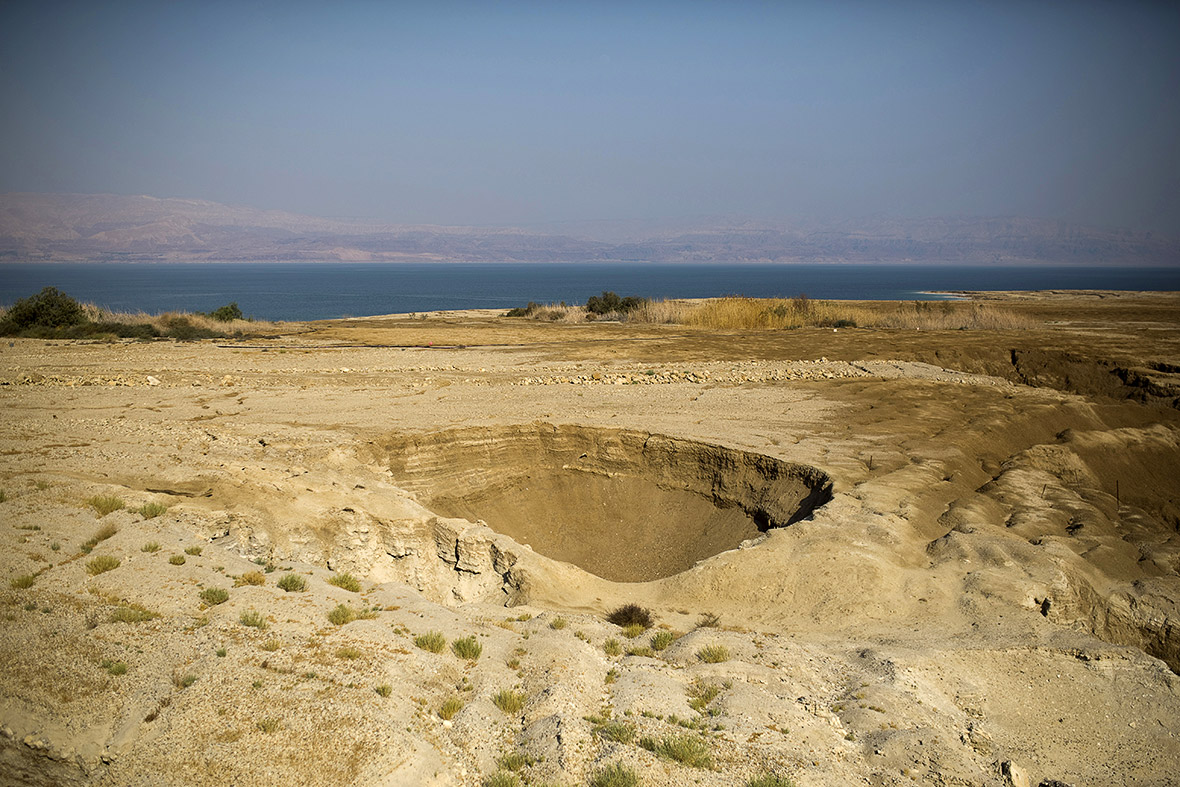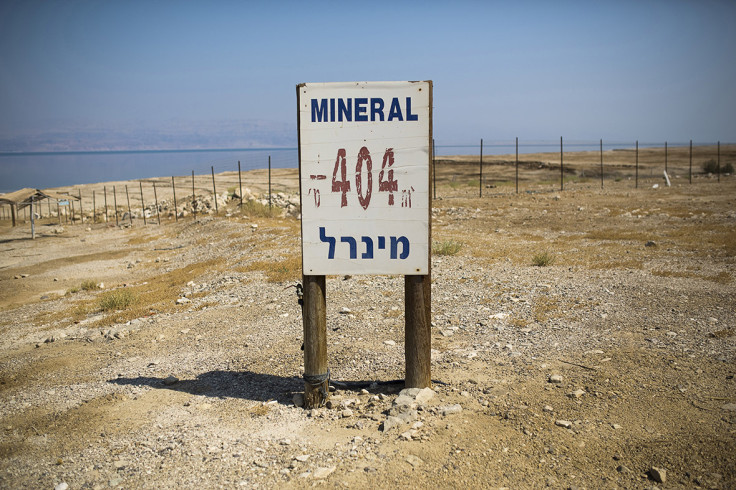Israel: The Dead Sea is shrinking and hundreds of sinkholes are opening up on its shores [Photos]
The Dead Sea is shrinking and as its waters recede by more than one metre a year, hundreds of sinkholes are appearing – some the size of a basketball court and two storeys deep. Some of them join up with nearby holes to form giant ones. The craters may poses a danger to tourists drawn to the world-famous mineral-laden waters. Tourist resorts have been closed, trees swallowed, caravans engulfed, roads buckled.
First observed in the 1970s, there are almost 4,000 sinkholes along the shores of the salty sea today. A couple of hundred new sinkholes are now appearing each year, and the rate is only expected to increase.



The main reason the sea is shrinking is because its natural water sources, which flow south through the Jordan River Valley from Syria and Lebanon, have been diverted for agriculture and drinking water along the way. Mining operations account for the remaining 30% of the deterioration, according to Israel's parliamentary research group.
The Dead Sea is a favourite spot for tourists, who enjoy floating effortlessly in its salty water and treating their skin with the mineral-rich mud that lines its shores. The sea also supports a huge mining industry. Israel Chemicals and Jordan's Arab Potash Company extract minerals for export around the world.




Deep beneath the newly exposed land is a 30m layer of salt formed over thousands of years. Without the Dead Sea waters to protect it, fresh water from rain or desert flash floods seep underground and dissolve the salt layer, creating a cavity that eventually collapses, sucking in the ground.
Guy Dunenfeld, head engineer for the Tamar regional council, points out sinkholes are not appearing in Jordan where the coast is steeper. The Israeli shore is flat, he explained, and waters evaporate at a much faster pace as a result. Dunendeld fears the worst is still to come. "As long as the level of the sea keeps on deteriorating the situation of the sea it keeps on getting worse. We are seeing the growth of sinkholes accelerating," he said.



Dov Litvinoff, mayor of the Tamar region, said sinkholes will only stop when the Dead Sea is rehabilitated, and that requires an international initiative, since it also borders Jordan and the West Bank. Even with everyone on board, he said, it would take decades to reverse the ecological damage to the ancient salt lake, which sits more than 400m below sea level, the lowest point on dry land.

The World Bank is promoting a much-talked-about project to desalinate water from the Red Sea and pump the leftover brine to the Dead Sea, but it is unclear whether it will take off, and environmental groups say it would be a drop in the bucket.
© Copyright IBTimes 2025. All rights reserved.






















